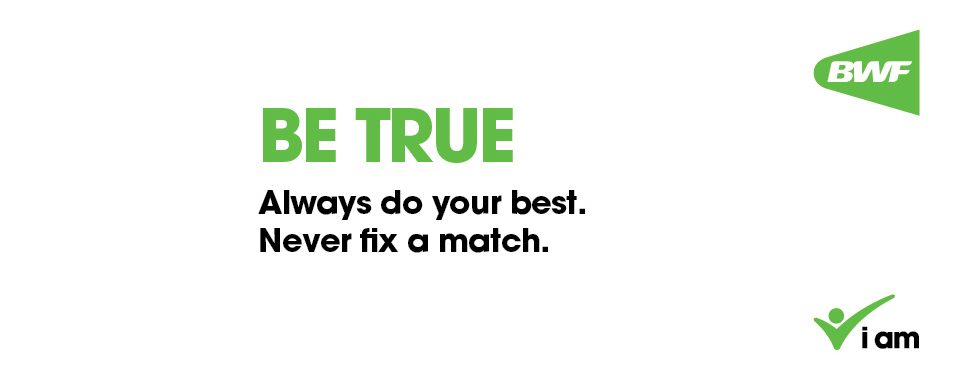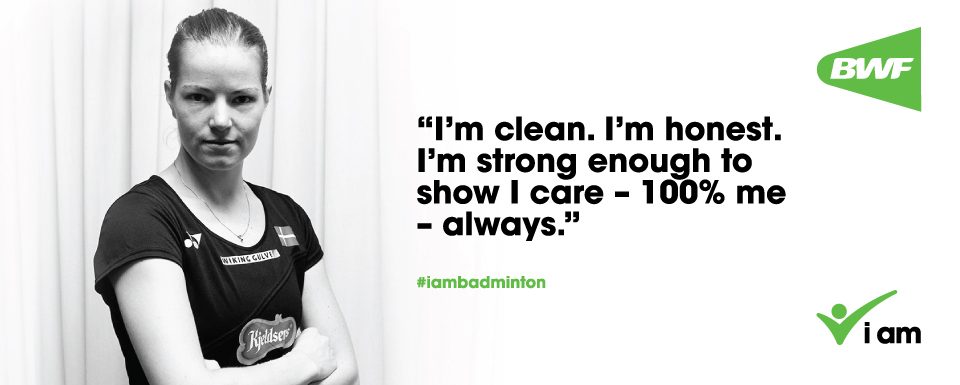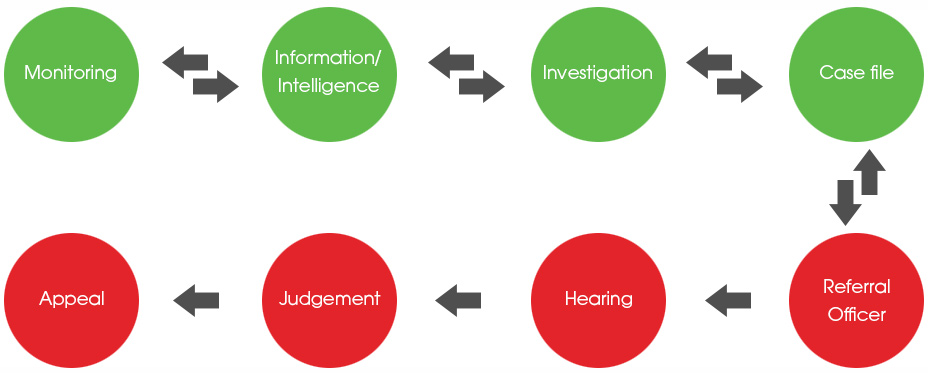Monitoring & Investigations
Monitoring is an important part of the anti-doping and anti-match fixing programmes.
BWF gathers information about players, matches and competitions. This information is analysed and intelligence is used in investigations into possible match manipulation.
The investigators may monitor particular players who are under suspicion they may target players for interviews.
Information is gathered in many ways including:
- betting monitoring companies who monitor betting patterns on badminton matches;
- player interviews – fact finding interviews and integrity interviews;
- alerts received from players, coaches and team managers who report suspicious activity that could be related to possible match manipulation;
- reports from referees of suspicious match play where “best efforts” may not have been used.
Cooperation with Investigations
BWF has investigators who conduct interviews at tournaments and who gather information from players and coaches.
It is your responsibility to:
- cooperate with any BWF investigation and investigators that BWF contracts.
- report any suspicious conduct that could relate to match manipulation.
- provide any evidence of suspicious behaviour such as WhatsApp messages, Facebook posts.
- not destroy, tamper with or hide evidence.
It is an offence to:
- provide any information that is false or not accurate to investigators.
- omit any relevant information which is requested.
- fail to comply with a requirement imposed on them.
- deliberately mislead or by an overt act, or endeavour to mislead.
Process – Investigations and Hearings
The diagram below shows the steps in the process from gathering information to accusing someone of match manipulation / corruption and then the judicial process that follows.
If the BWF has enough evidence that a player is involved in match fixing or match manipulation, the BWF prepares a case file, and this is sent to a Referral Officer.
The Referral Officer is an independent lawyer who looks at the evidence and the regulations and decides if the person should be charged with an offence. In that situation, an Ethics Hearing Panel is established and the person will then be charged with the offence.
The next steps involve the hearing itself, and a chance for the person to appeal the decision.
More Information

























